
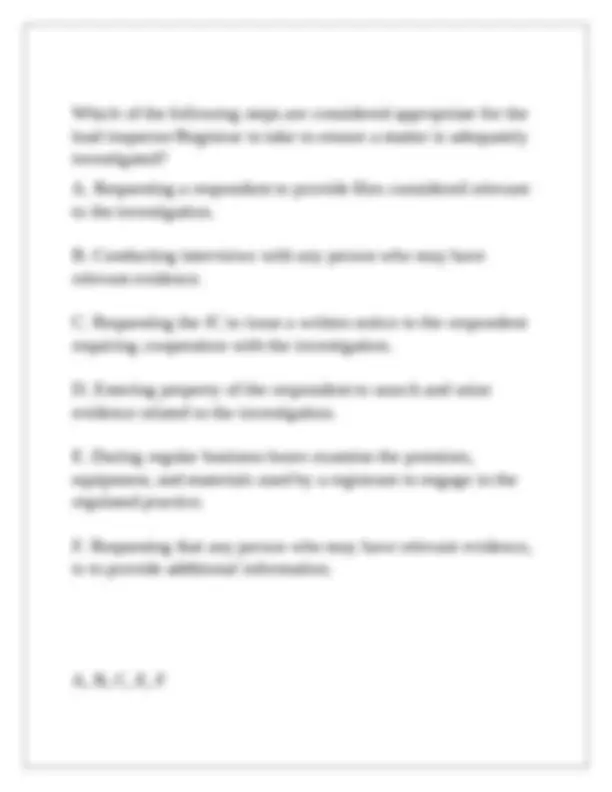
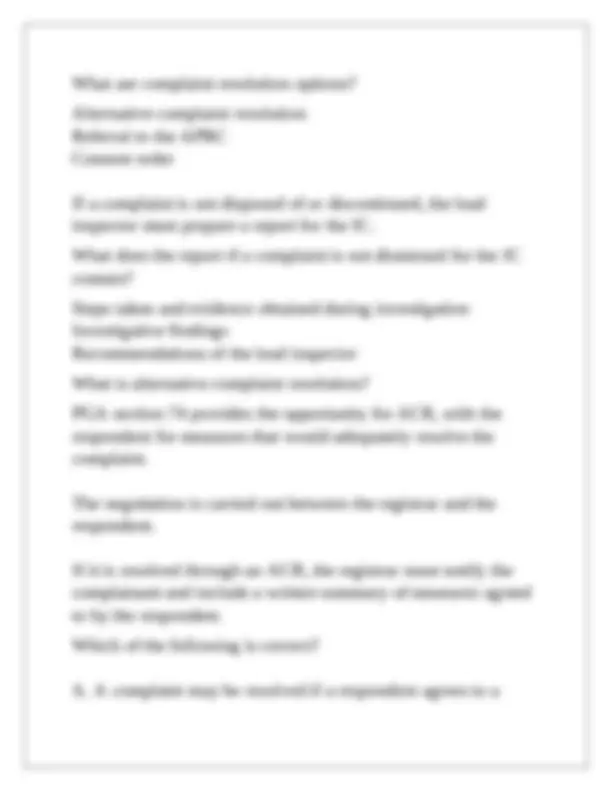
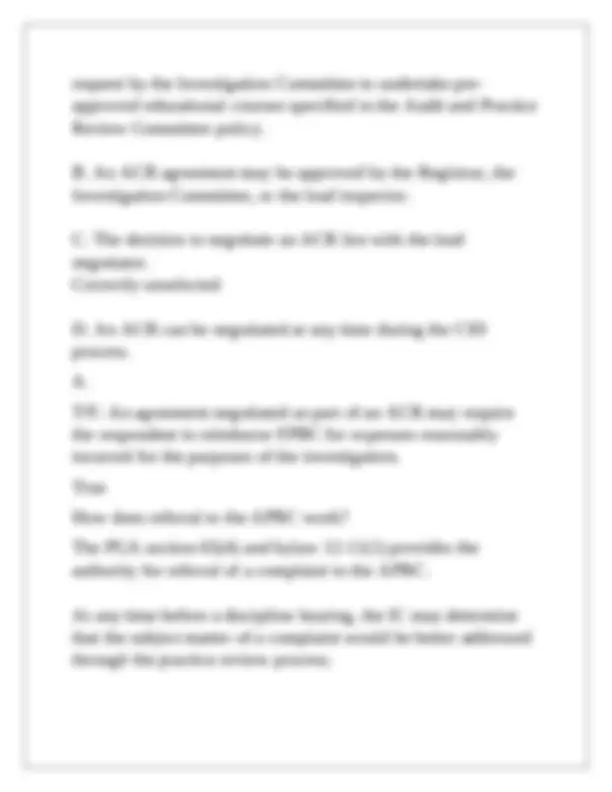
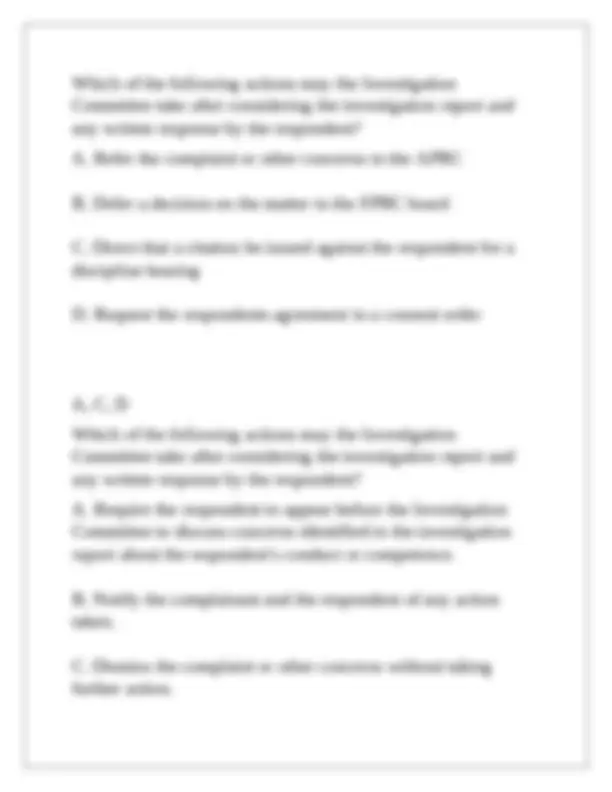
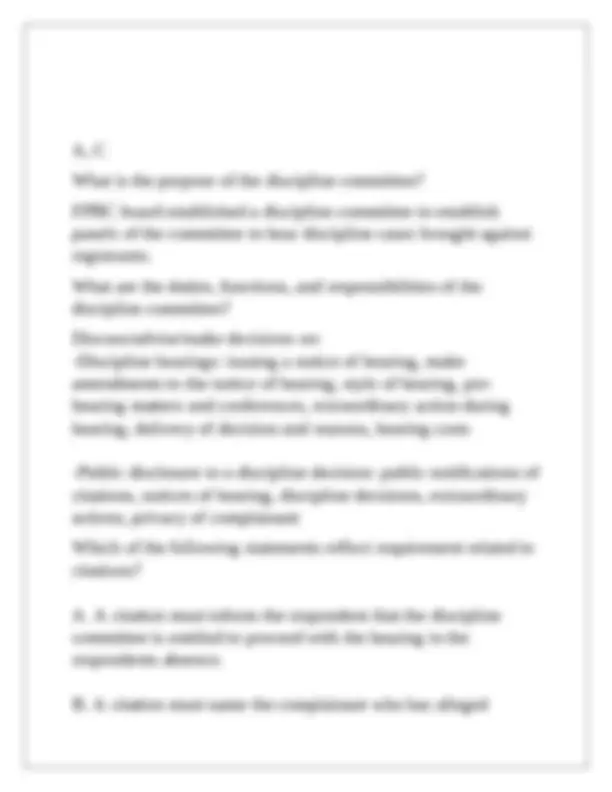
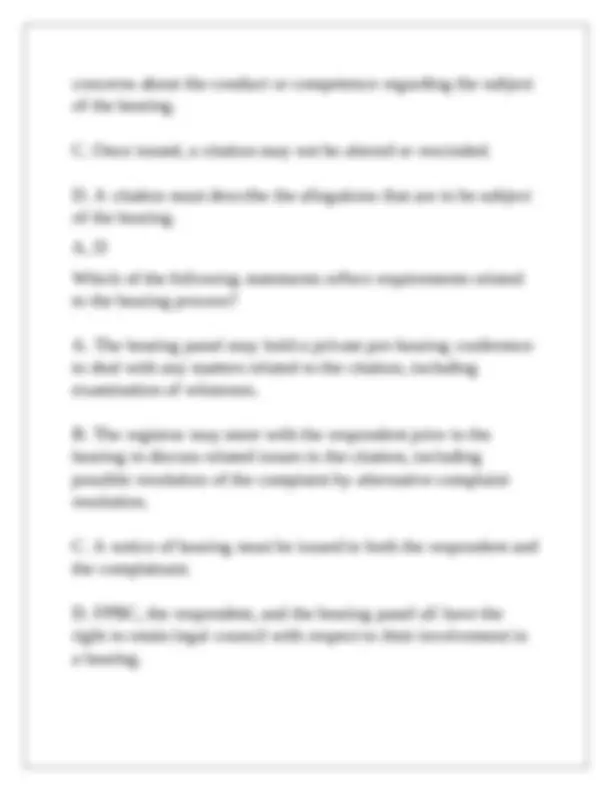
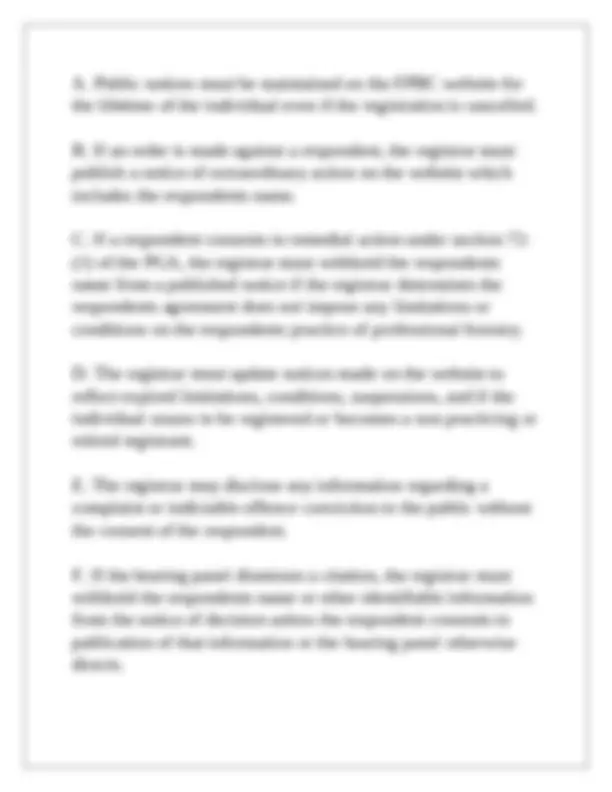
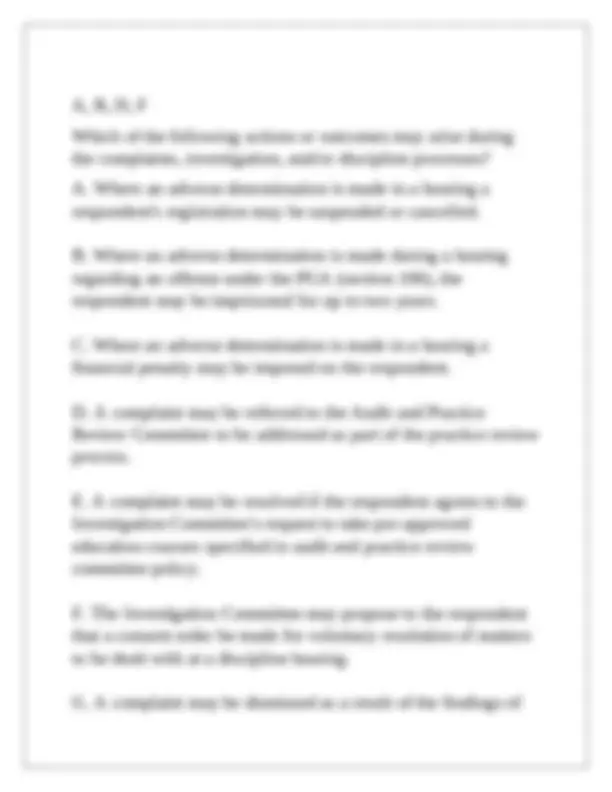
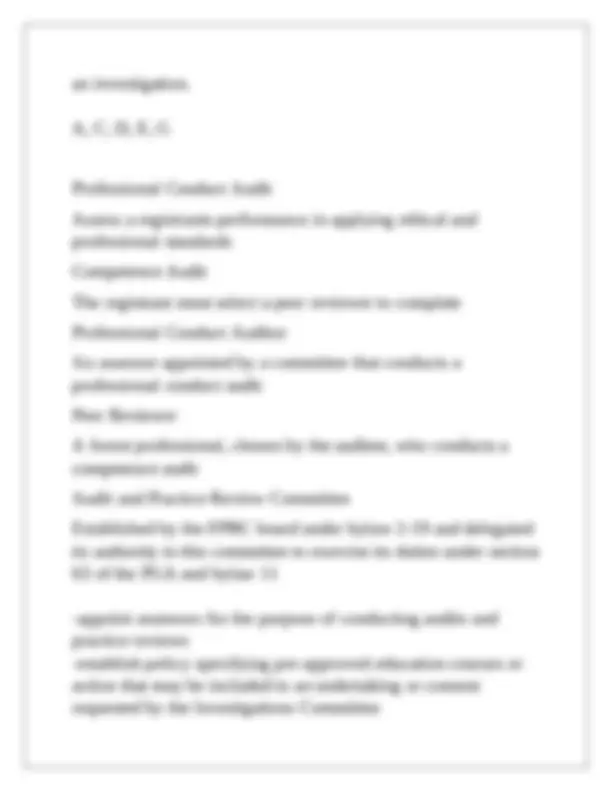
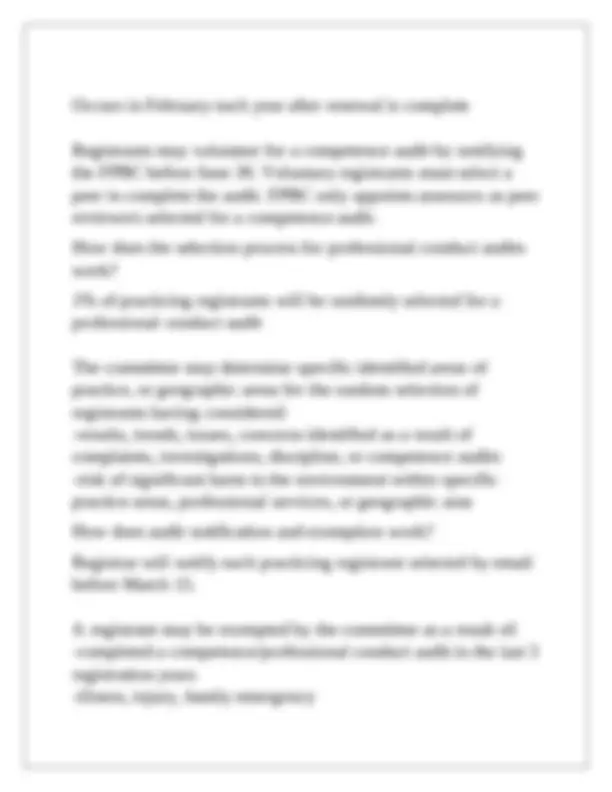
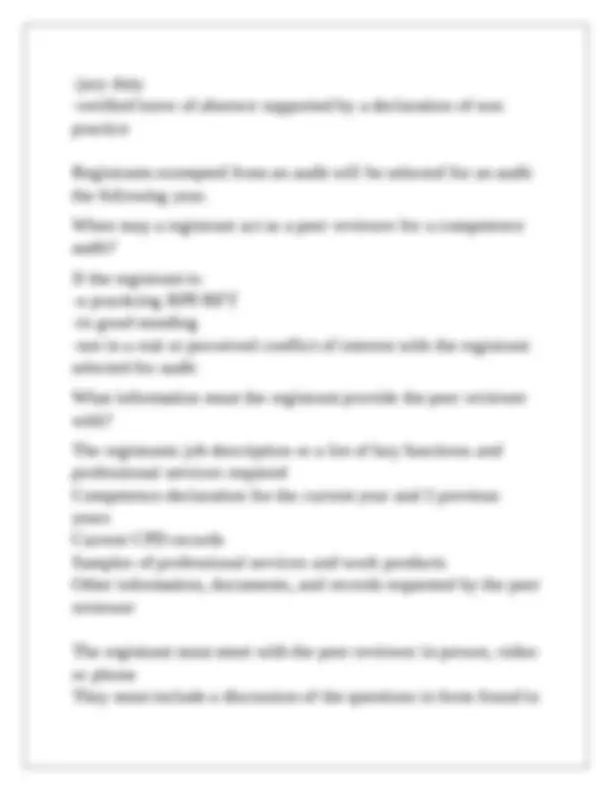
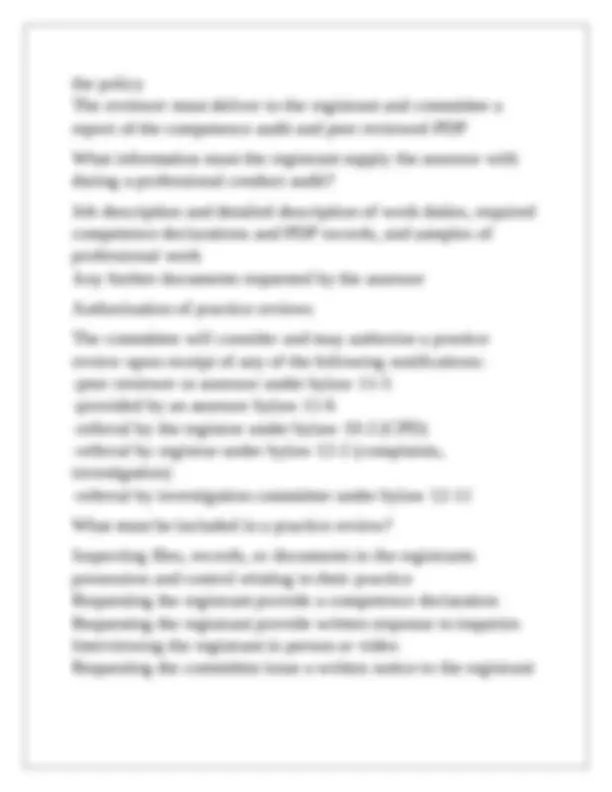
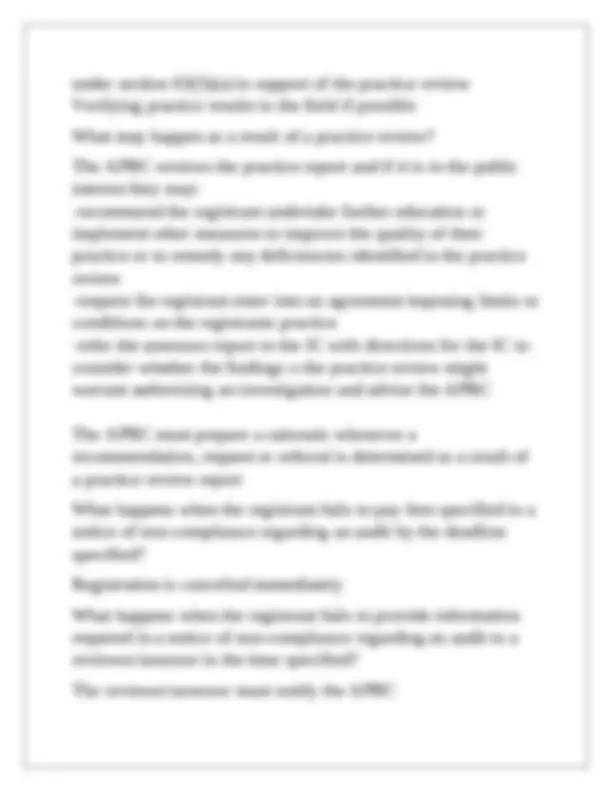
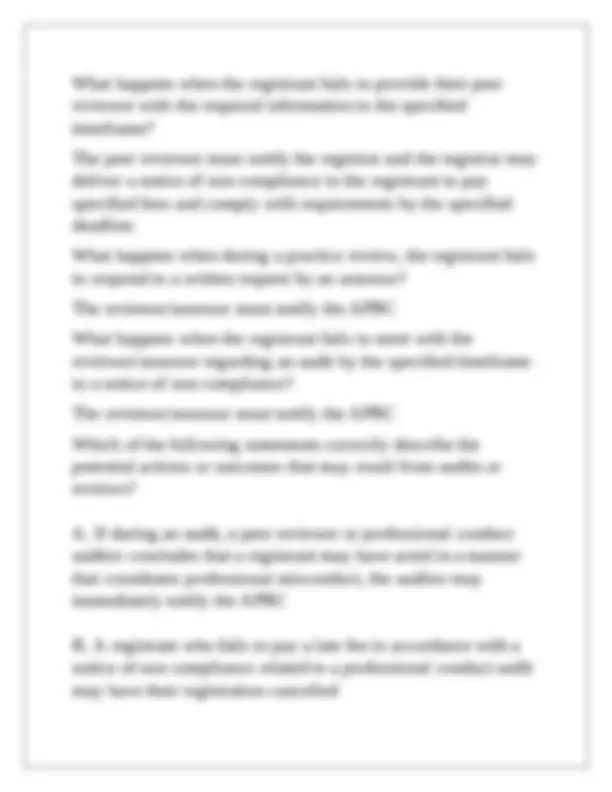
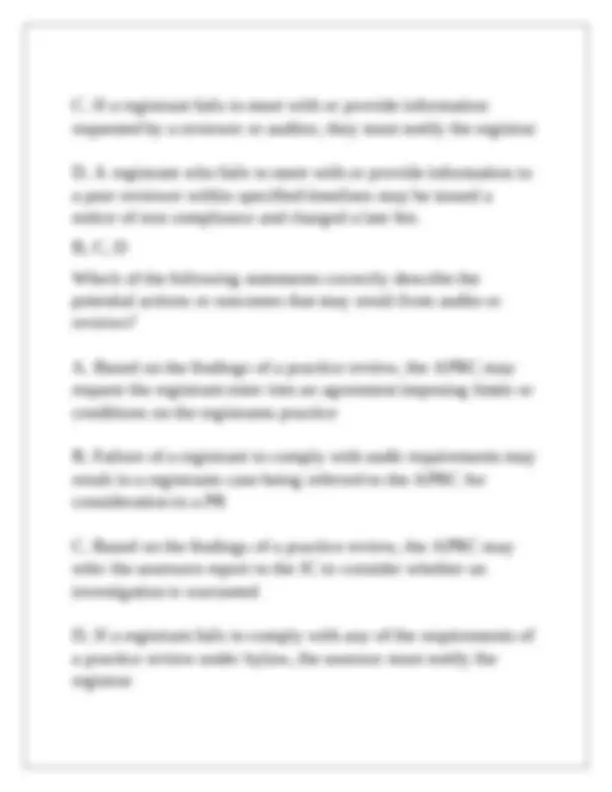
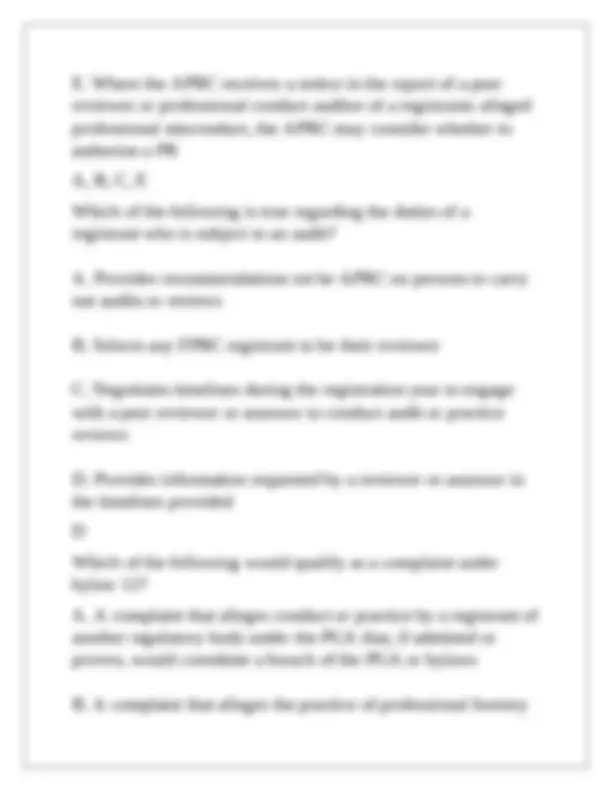
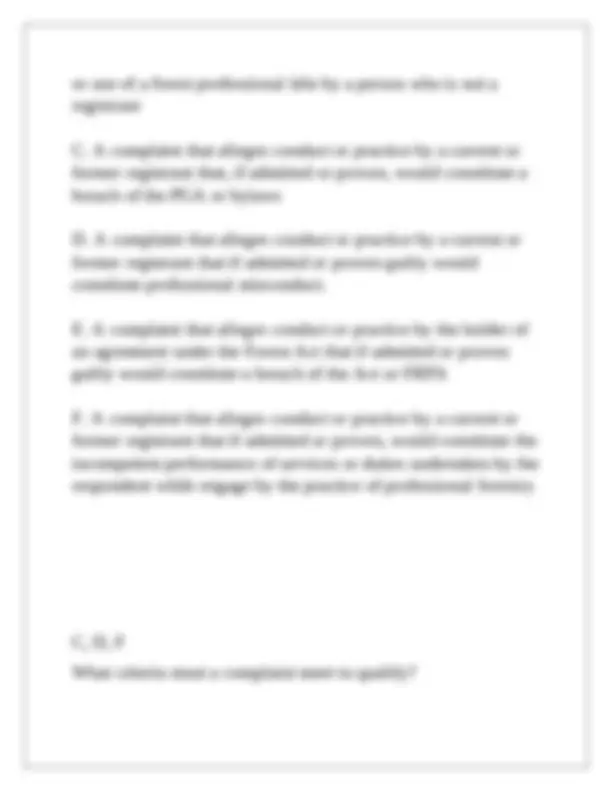
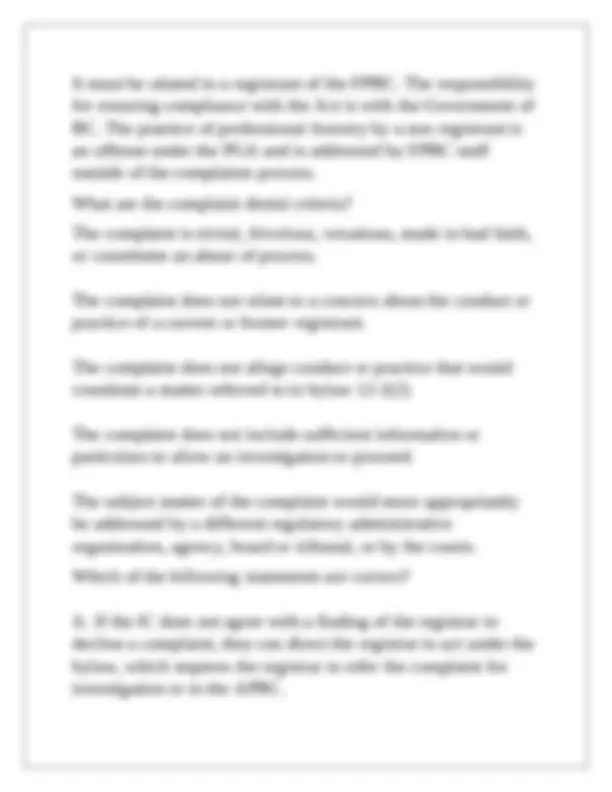
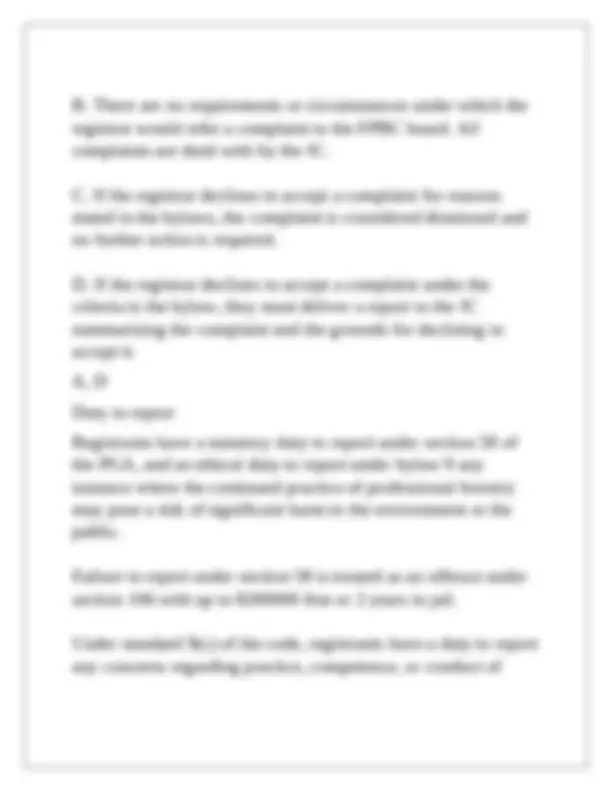
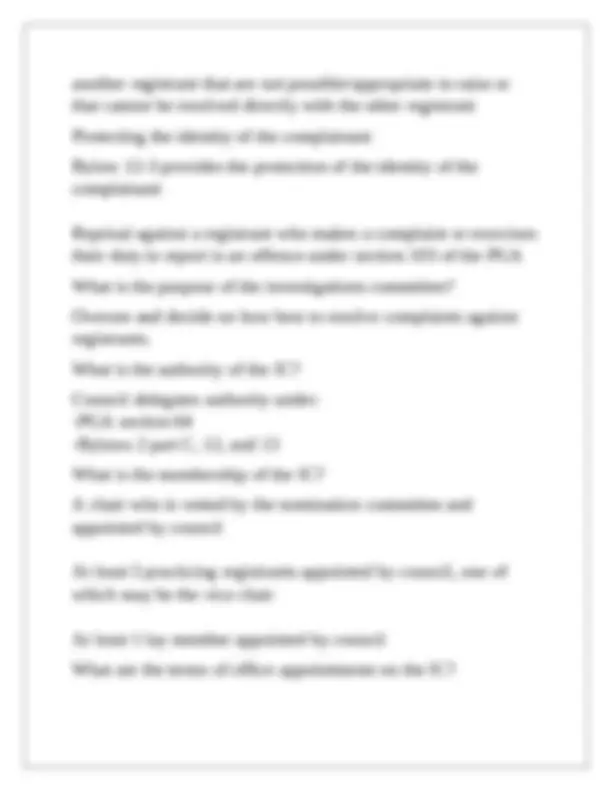
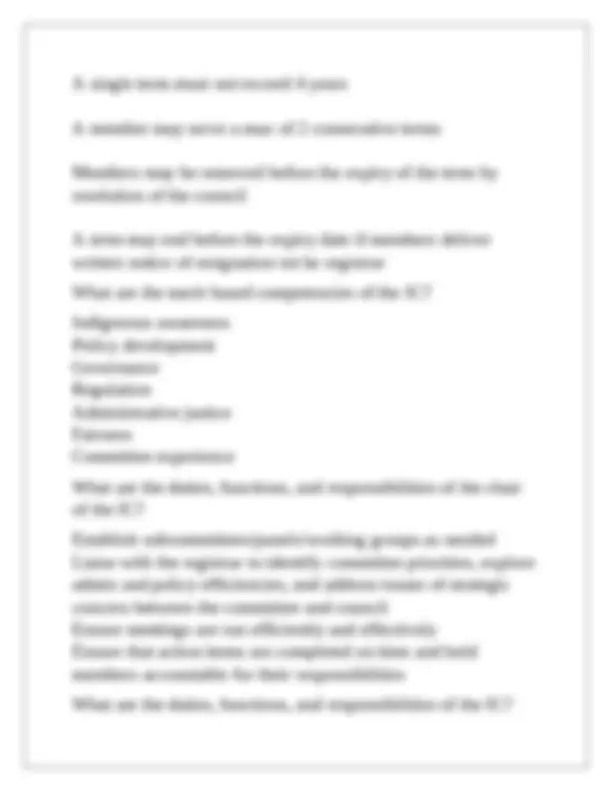
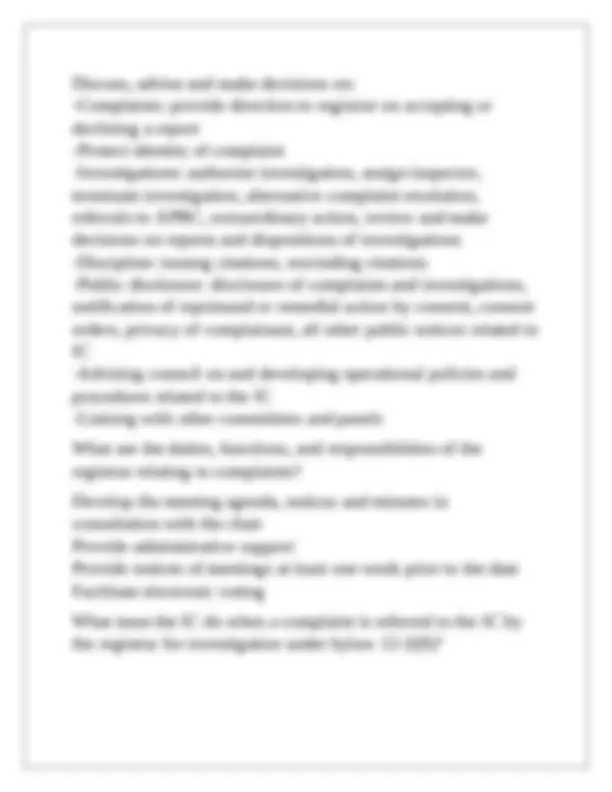
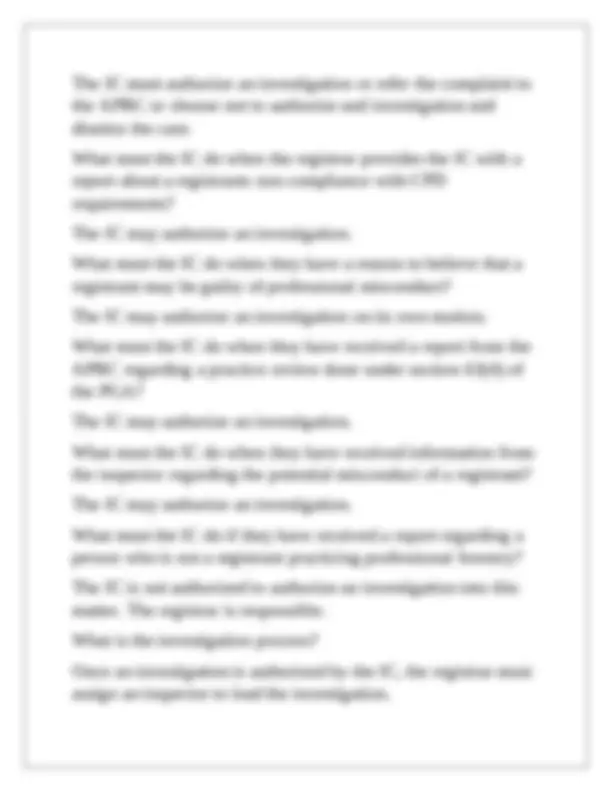
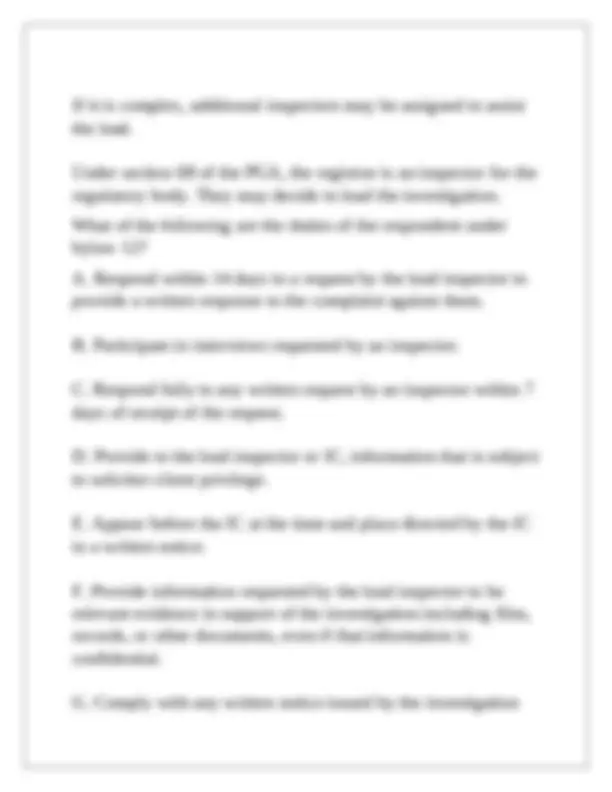
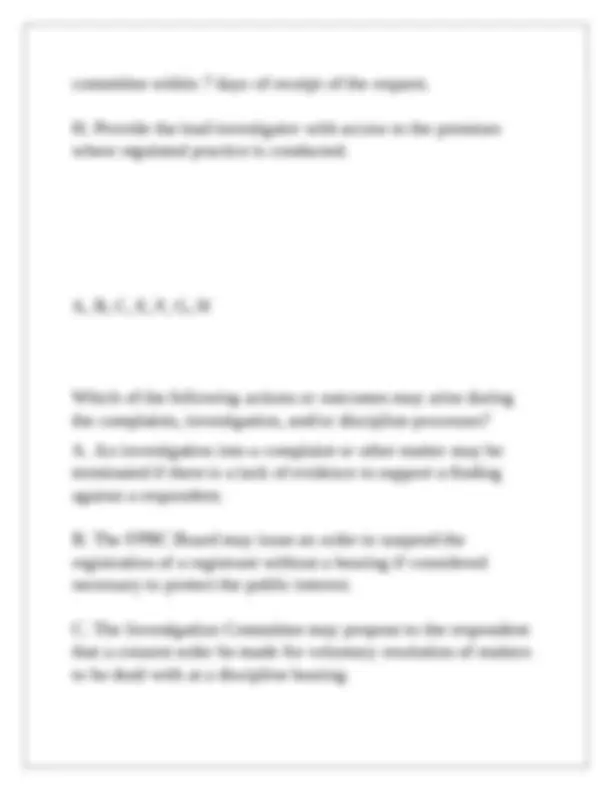
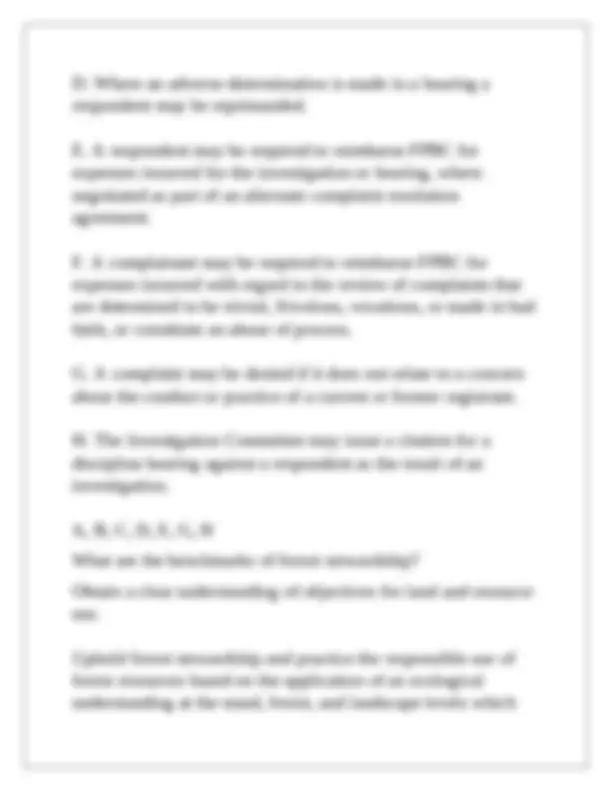
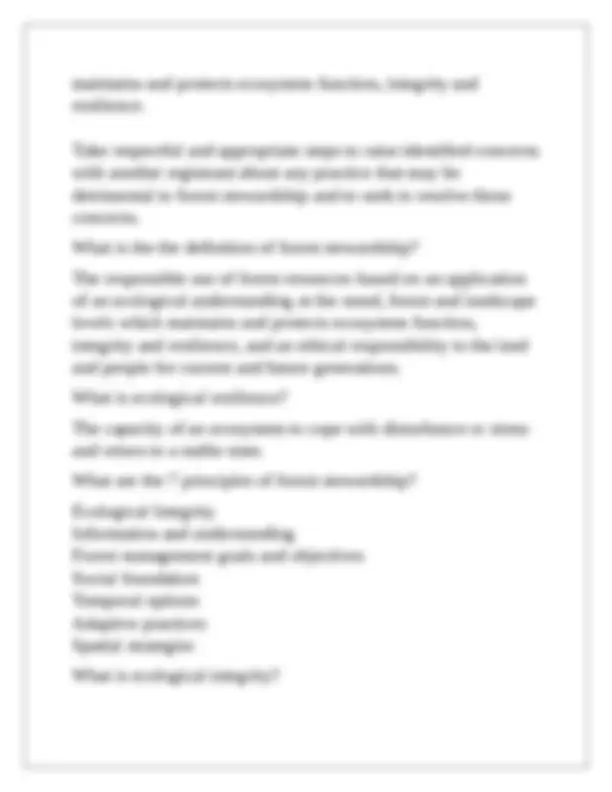
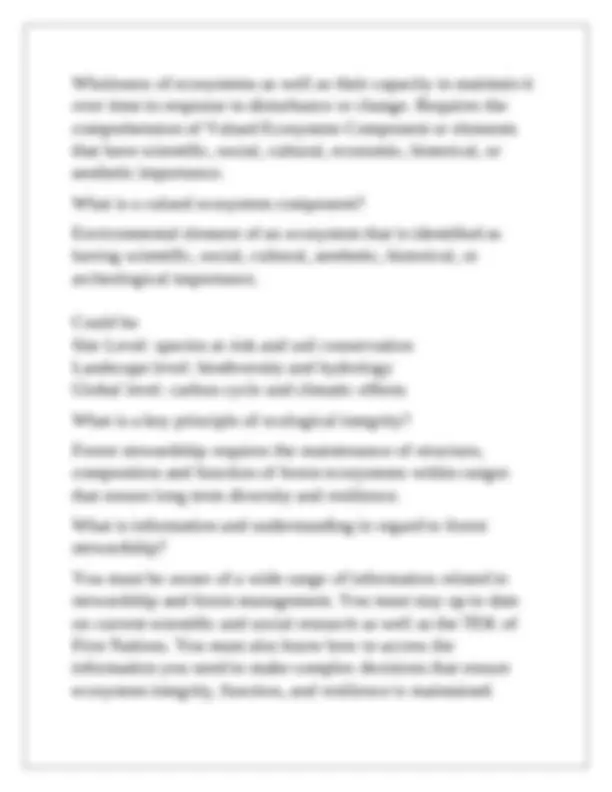

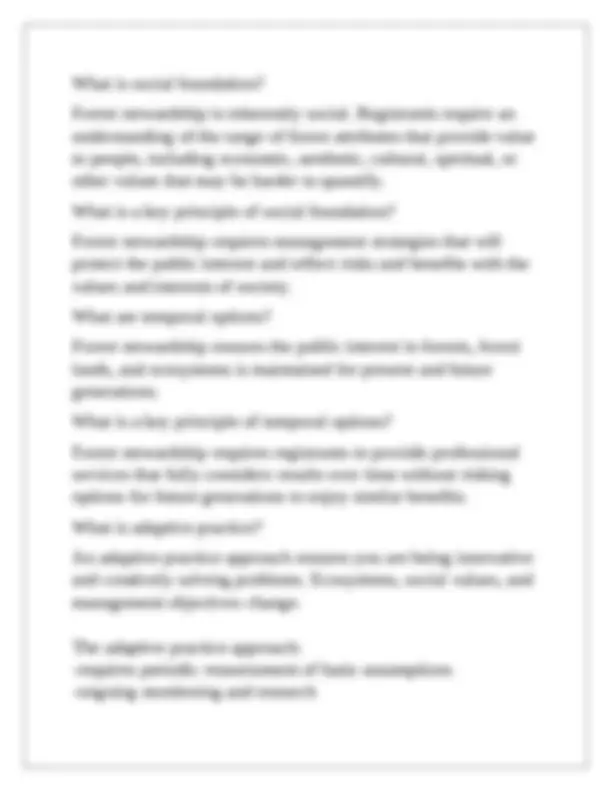
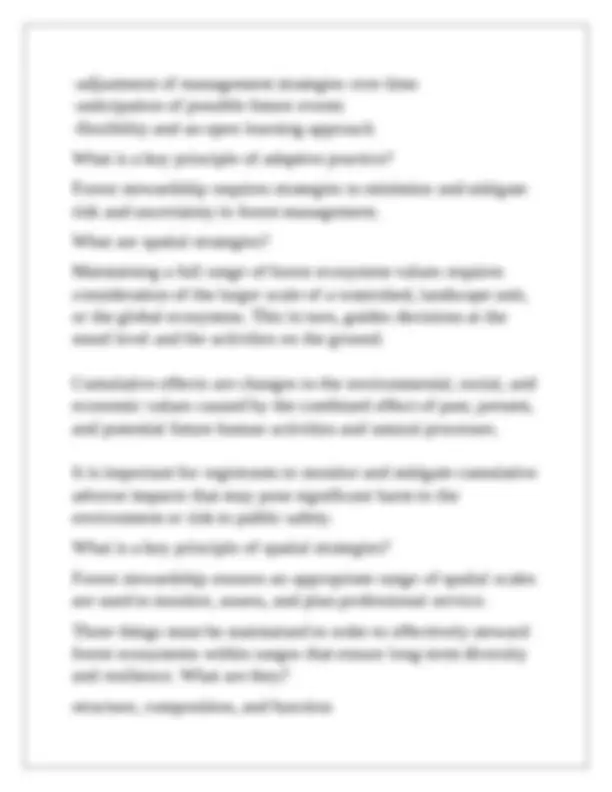






Study with the several resources on Docsity

Earn points by helping other students or get them with a premium plan


Prepare for your exams
Study with the several resources on Docsity

Earn points to download
Earn points by helping other students or get them with a premium plan
Community
Ask the community for help and clear up your study doubts
Discover the best universities in your country according to Docsity users
Free resources
Download our free guides on studying techniques, anxiety management strategies, and thesis advice from Docsity tutors
FIT Exam 1D Questions With Complete Solutions
Typology: Exams
1 / 43

This page cannot be seen from the preview
Don't miss anything!




































FIT Exam 1D Questions With Complete Solutions What is the balance and outcome test? Do I use a reasonable and balanced approach in my professional work to ensure good forest stewardship? Can I demonstrate the right level of risk assessment using appropriate scales? Knowledge and application test Can I demonstrate I am working in my area of expertise? Legal test Is there sufficient documentation for the implementation of my professional work? Communication test Can I demonstrate the right level of risk assessment using appropriate scales? Outcomes and balance test Does my work meet the legal requirements, including standards, ethics, and peer review? Legal test Can I demonstrate that my professional work is informed by current information? Knowledge and application test
Have I explained what I did to lead to a clear understanding? Communication test Have I appropriately reported progress on achieving landowners resource management plans? Outcomes and balance test Which of the following statements must a registrant comply with as part of Code Standard 6 – Forest Stewardship? A. Registrants must practice the responsible use of forest resources based on knowledge of forest sector economics and markets. B. Registrants must obtain a clear understanding of objectives for land and resource use. C. Registrants work to improve practices and policies affecting forest stewardship. D. Registrants must uphold forest stewardship. E. Registrants must take respectful and appropriate steps to raise identified concerns with another registrant about any practice that may be detrimental to forest stewardship, and to seek to resolve those concerns. B, C, D, E
What are complaint resolution options? Alternative complaint resolution Referral to the APRC Consent order If a complaint is not disposed of or discontinued, the lead inspector must prepare a report for the IC. What does the report if a complaint is not dismissed for the IC contain? Steps taken and evidence obtained during investigation Investigative findings Recommendations of the lead inspector What is alternative complaint resolution? PGA section 74 provides the opportunity for ACR, with the respondent for measures that would adequately resolve the complaint. The negotiation is carried out between the registrar and the respondent. If it is resolved through an ACR, the registrar must notify the complainant and include a written summary of measures agreed to by the respondent. Which of the following is correct? A. A complaint may be resolved if a respondent agrees to a
request by the Investigation Committee to undertake pre- approved educational courses specified in the Audit and Practice Review Committee policy. B. An ACR agreement may be approved by the Registrar, the Investigation Committee, or the lead inspector. C. The decision to negotiate an ACR lies with the lead negotiator. Correctly unselected D. An ACR can be negotiated at any time during the CID process. A. T/F: An agreement negotiated as part of an ACR may require the respondent to reimburse FPBC for expenses reasonably incurred for the purposes of the investigation. True How does referral to the APRC work? The PGA section 65(4) and bylaw 12-11(1) provides the authority for referral of a complaint to the APRC. At any time before a discipline hearing, the IC may determine that the subject matter of a complaint would be better addressed through the practice review process.
After reviewing the report and input from the respondent, the IC may direct the lead inspector to conduct further investigation and prepare an amended supplementary investigation report. In what situation(s) may the respondent be required to submit a written response to the investigation report? A. During the process of reviewing the report and prior to deciding what action to take, the Investigation Committee determines the need for a written response to the report by the respondent. B. The FPBC Board determines if there is a need for a written response to the report by the respondent. C. On preliminary review of the report, the Investigation Committee determines if there may be reasonable grounds to issue a citation against the respondent for a discipline hearing. D. The lead investigator determines if there is a need for a written response to the report by the respondent. E. The Registrar determines the need for a written response to the report by the respondent prior to the Investigation Committee review. A, C, E
Which of the following actions may the Investigation Committee take after considering the investigation report and any written response by the respondent? A. Refer the complaint or other concerns to the APRC B. Defer a decision on the matter to the FPBC board C. Direct that a citation be issued against the respondent for a discipline hearing D. Request the respondents agreement to a consent order A, C, D Which of the following actions may the Investigation Committee take after considering the investigation report and any written response by the respondent? A. Require the respondent to appear before the Investigation Committee to discuss concerns identified in the investigation report about the respondent's conduct or competence. B. Notify the complainant and the respondent of any action taken. C. Dismiss the complaint or other concerns without taking further action.
concerns about the conduct or competence regarding the subject of the hearing. C. Once issued, a citation may not be altered or rescinded. D. A citation must describe the allegations that are to be subject of the hearing. A, D Which of the following statements reflect requirements related to the hearing process? A. The hearing panel may hold a private pre-hearing conference to deal with any matters related to the citation, including examination of witnesses. B. The registrar may meet with the respondent prior to the hearing to discuss related issues in the citation, including possible resolution of the complaint by alternative complaint resolution. C. A notice of hearing must be issued to both the respondent and the complainant. D. FPBC, the respondent, and the hearing panel all have the right to retain legal council with respect to their involvement in a hearing.
E. A hearing will be conducted in writing where requested by the respondent. B, C, D Hearing outcomes At the conclusion of the hearing, the panel must deliver its decisions and written reasons to the registrant, complainant, and the respondent. The panel must dismiss the citation or determine that the respondent has committed one or more of the following: -professional misconduct -conduct unbecoming a registrant -incompetent performance of duties undertaken while engaged in regulated practice What can happen if an adverse determination against a registrant is made? Reprimand Fine up to $ Assignment of costs Imposition of conditions Suspension or cancellation of registration Undertake remedial programs or appear before a committee What can happen if an adverse determination against a trainee is made? Require the trainee undertake further training Reprimand the trainee
A. Public notices must be maintained on the FPBC website for the lifetime of the individual even if the registration is cancelled. B. If an order is made against a respondent, the registrar must publish a notice of extraordinary action on the website which includes the respondents name. C. If a respondent consents to remedial action under section 72- (1) of the PGA, the registrar must withhold the respondents name from a published notice if the registrar determines the respondents agreement does not impose any limitations or conditions on the respondents practice of professional forestry. D. The registrar must update notices made on the website to reflect expired limitations, conditions, suspensions, and if the individual ceases to be registered or becomes a non practicing or retired registrant. E. The registrar may disclose any information regarding a complaint or indictable offence conviction to the public without the consent of the respondent. F. If the hearing panel dismisses a citation, the registrar must withhold the respondents name or other identifiable information from the notice of decision unless the respondent consents to publication of that information or the hearing panel otherwise directs.
Which of the following actions or outcomes may arise during the complaints, investigation, and/or discipline processes? A. Where an adverse determination is made in a hearing a respondent's registration may be suspended or cancelled. B. Where an adverse determination is made during a hearing regarding an offense under the PGA (section 106), the respondent may be imprisoned for up to two years. C. Where an adverse determination is made in a hearing a financial penalty may be imposed on the respondent. D. A complaint may be referred to the Audit and Practice Review Committee to be addressed as part of the practice review process. E. A complaint may be resolved if the respondent agrees to the Investigation Committee's request to take pre-approved education courses specified in audit and practice review committee policy. F. The Investigation Committee may propose to the respondent that a consent order be made for voluntary resolution of matters to be dealt with at a discipline hearing. G. A complaint may be dismissed as a result of the findings of
-impose restrictions on the practice of registrants based on the findings of a practice review -refer matters to the Investigations Committee if there are reasonable grounds to believe a registrants continued practice poses a threat to the public interest Selection of Registrants Audit and practice review policy sets out requirements and processes for the selection of registrants for audit or practice review What is the purpose of a competence audit? To assess registrants competence (skills, knowledge, ability), including the understanding of ethical and professional standards, FPBC bylaws, guidance and policy. Verify general competence, CPD activities, PDP, and competence declaration records. Conducted by a peer reviewer What is the purpose of a professional conduct audit? Assess the registrants performance in applying ethical and professional standards. Performance based and conducted by an assessor appointed by the audit and practice review committee to verify professional conduct. When are practice reviews authorized?
Only authorized by the committee after a notification or referral from a peer reviewer, assessor, or investigation committee. What is the purpose of a practice review? Assess and verify a registrants professional practice performance in applying ethical and professional standards including demonstrated use of bylaws, guidance, and policy within an identified scope of practice related to the scope and context provided in the notification/referral. What are the criteria for assessors to be considered for appointment by the APR committee? Practicing RFT or RPF In good standing Knowledge of the bylaws and PGA 10 years experience in one or more practice area (preferred) Experience auditing or assessing forest activities conducted by forest professionals (preferred) What are some pre-approved educational courses or actions? LMS modules 1- Principles of stewardship e-course Climate change fundamentals course Other courses/learning activities/actions determined by the committee to support the specific undertaking or consent requested by the IC How does the selection process for competence audits work? 3% of all practicing registrants will be randomly selected for a competence audit
-jury duty -verified leave of absence supported by a declaration of non practice Registrants exempted from an audit will be selected for an audit the following year. When may a registrant act as a peer reviewer for a competence audit? If the registrant is: -a practicing RPF/RFT -in good standing -not in a real or perceived conflict of interest with the registrant selected for audit What information must the registrant provide the peer reviewer with? The registrants job description or a list of key functions and professional services required Competence declaration for the current year and 3 previous years Current CPD records Samples of professional services and work products Other information, documents, and records requested by the peer reviewer The registrant must meet with the peer reviewer in person, video or phone They must include a discussion of the questions in form found in
the policy The reviewer must deliver to the registrant and committee a report of the competence audit and peer reviewed PDP What information must the registrant supply the assessor with during a professional conduct audit? Job description and detailed description of work duties, required competence declarations and PDP records, and samples of professional work Any further documents requested by the assessor Authorization of practice reviews The committee will consider and may authorize a practice review upon receipt of any of the following notifications: -peer reviewer or assessor under bylaw 11- -provided by an assessor bylaw 11- -referral by the registrar under bylaw 10-2 (CPD) -referral by registrar under bylaw 12-2 (complaints, investigation) -referral by investigation committee under bylaw 12- What must be included in a practice review? Inspecting files, records, or documents in the registrants possession and control relating to their practice Requesting the registrant provide a competence declaration Requesting the registrant provide written response to inquiries Interviewing the registrant in person or video Requesting the committee issue a written notice to the registrant